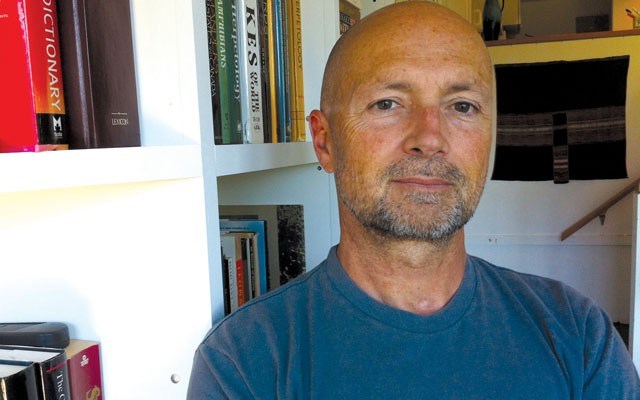Almost everyone has a story about invasive species, says long-time Whistler local and scientist Leslie Anthony in his new book, The Aliens Among Us: How Invasive Species are Transforming the Planet and Ourselves.
Last summer, while on a trip to Orlando, Fla., my sister came face to face with a Burmese python, a non-native species much talked about in this book and one that has exploded in numbers in recent decades, even pushing Florida officials to bring in snake hunters from as far away as India.
But the topic of invasive species also hits much closer to home.
Driving the Sea to Sky Highway, small yellow signs remind us about the dangers of Japanese knotweed in our ecosystem. To curb the problem, some of us have volunteered to help eradicate invasive species from our backyards. I once clipped away thorny Himalayan blackberry bushes in Vancouver. With bloody arms, I felt I was doing my part in restoring the balance of nature.
Anthony explains that public awareness is key to early detection of alien species and one way to galvanize us into action. But, as he writes, it is much more complicated than that. Invasive species travel the world, willingly or otherwise, accidentally or intentionally, often to places where we would least expect them.
Once, while visiting Canada, my mother-in-law decided to take back some seeds of native B.C. plants to her home in Argentinian Patagonia. I never had the confidence to tell her in English (or Spanish) that it probably was not a good idea.
The history of world trade and commerce, and the movement of humanity from one place to another, is only part of the story. Anthony explains that it can be as simple as having "mud-caked shoes," which, if let loose, could contain seeds of numerous invasive plants, but also the "spores, eggs and larvae, respectively of alien fungi, earthworms and soil invertebrates."
In other words, these are microorganisms that we can't see. It's a stark reminder to clean your shoes after a trip to the backcountry and not to forget to clean your canoe, paddles and fishing gear too.
Intertwining travel, science, history and humour, Anthony weaves a narrative on invasive species that is accessible to all readers. Part memoir, part science study, Anthony shows that there has never been a more important time to work together to prevent invasive species from hijacking ecosystems around the globe.
Farha Guerrero is a writer who uses an early 1970s manual typewriter. She recently started grad school and teaches Spanish lessons at the Whistler Public Library.
Leslie Anthony will be at the Whistler Writers Festival on October 14, 8 p.m., presenting at the When Reality Looks Like Fiction, How do you Write Your Way to the Truth? reading event. www.whistlerwritersfest.com.




